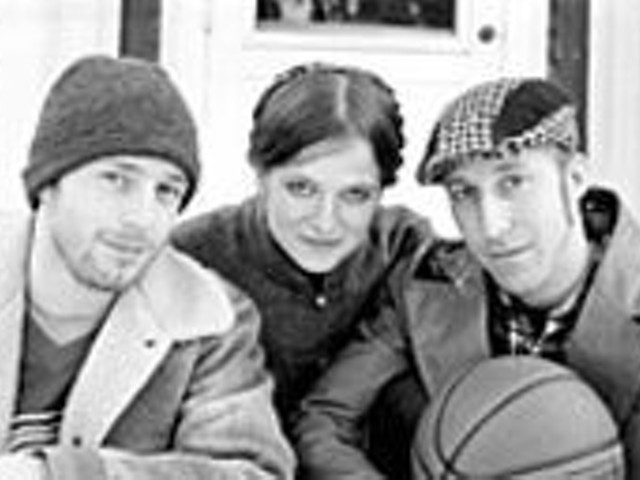The play follows Nick, a new biology teacher at a small Eastern college, who is invited with his wife, Honey, for a drink at the home of George and Martha after a faculty party (George teaches history; Martha is the daughter of the college president). The relationship of George and Martha, built on power struggles and elaborate game-playing, sets up the competitive atmosphere driving the action. Nick and Honey, initially pawns in the games of George and Martha, become active players as the early morning hours pass. Martha, in describing a boxing match that she and George had as "funny, but awful," provides an apt description for both marriages in this play. The audience is at times laughing and frightened, repulsed and intrigued.
In the intimate Wolfson Studio Theatre, every movement counts. From the careful way that George folds Martha's coat to Nick's tiny gestures of concern for Honey, every character detail seems honest. The actors take risks with the material; they play it at full speed, often overlapping speeches -- reinforcing the reality that nobody is really listening very closely to anybody else. Each moment builds on the previous. When one character raises the stakes, everyone responds. Although I've seen this play several times, I found myself finally understanding why this night, of all nights, is so different -- why this is the night when, as George and Martha put it, "it snaps."
Byers plays Martha's rapid transitions from loud-mouthed bitch to baby-talking tease with ease. Her body is almost never still -- the pain inside Martha leaks out even when she's sitting -- the built-up tension is always simmering beneath the surface. Meddows matches her intensity with a chilling calm that explodes in violence. The few moments of genuine affection between George and Martha contrast nicely with their mean-spirited battles. They embody the play's question of truth and illusion, living in a reality created through lies.
The marriage of Nick and Honey is also built on deception. Even before Nick reveals the real reasons that he married Honey, Sanz-Agero has shown Nick's ambition in his reactions to Martha and his opportunistic attitude toward the events of the evening. But Sanz-Agero doesn't get stuck in a one-note portrayal -- his Nick seems to actually learn something from the nightmarish nightcap. The most pleasant surprise of the production is Sarah Cannon's Honey. Honey seems to be written as an air-headed simp, a passive wife bowled over by the stronger characters in the play. But Cannon gives Honey an edge -- when Nick stops her from dancing, she reacts with strength instead of whining. When her secrets are revealed, she grieves and moves on, providing the only slim hope that remains at the end of the play.
The nearly naked set is distracting only before the play begins; once the actors are onstage, they fill the space with character and conflict. Albee described the initial Broadway offering of Who's Afraid of Virginia Woolf? as "a sneaky little low-budget production. But it managed to have damned good actors and a good director. It was put on pretty much exactly the way I wrote it." Albee's quote pretty accurately describes Vanity Theatre's production -- it's presented uncut, bare-bones, with in-depth acting that breathes fresh life into the now-familiar story.
The best compliment to a director in a realistic, character-driven play like this is that the directing was invisible. Jason Cannon deserves that compliment -- clearly he encourages actors to take risks and play each moment. The result is that the action seems spontaneous instead of staged. At the end of the three-hour marathon, when Honey and Nick are finally released to the dawn and George and Martha sit in the dim light, contemplating their future, we're nearly as exhausted as the characters. But it's a good tired, borne of the excitement and emotion of great theater.





